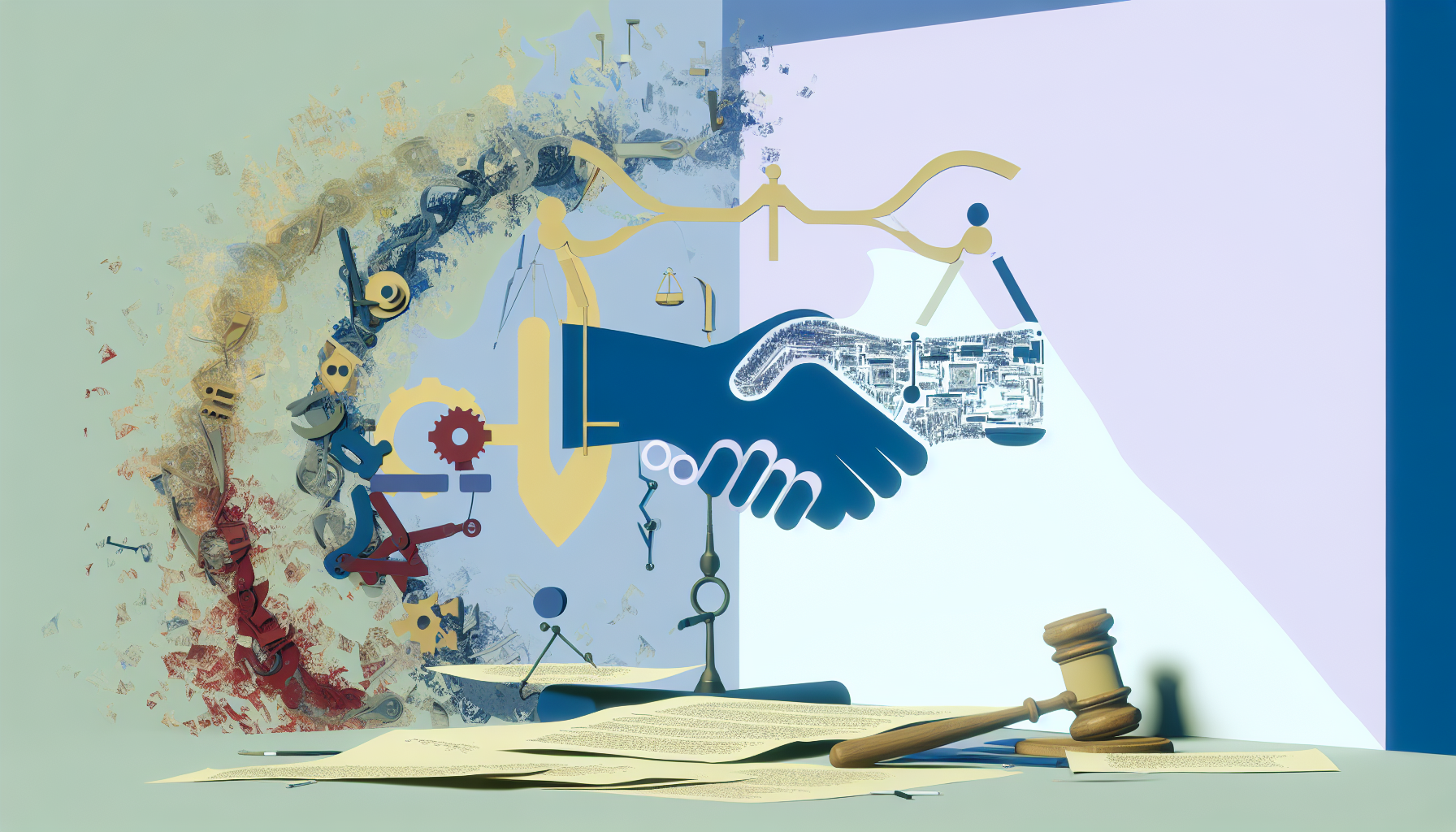The notion of a social contract, a cornerstone of political philosophy, serves as an implicit agreement within societies to maintain a semblance of order by balancing the rights and duties of individuals and the governing entities. The classic interpretations, one presented by Thomas Hobbes, capture a gritty truth about human nature and society: without rules and structures, chaos would reign. But in our modern landscape, should we extend this conversation to include artificial intelligence (AI)? And if so, how can Hobbes guide us in our exploration?
The Leviathan Reimagined
Hobbes famously described life without government—that is, without a social contract—as “solitary, poor, nasty, brutish, and short.” His solution was the Leviathan, a sovereign power to instate and enforce laws that could control the unsavory aspects of human inclinations and foster peace and prosperity. Today, the rise of AI presents new challenges and opportunities that might require an updated version of our social contract.
Consider AI as a component in the machinery of the modern Leviathan: a potentially powerful and multifaceted entity that could enforce our laws, manage resources, and ostensibly work for the common good. AI systems have already begun to make decisions that affect our daily lives, from credit approvals to law enforcement surveillance—but all without a clear guiding social contract. So, what happens if the AI “Leviathan” lacks oversight? Insert your favorite dystopian movie scenario here.
Crafting a New Agreement
As technology advances, we are forced to confront an ever-important question: how do we adapt our social contract to account for non-human actors like AI? Perhaps we can start by developing frameworks that define clear roles and responsibilities for AI, akin to the rules laid out for humans.
In a Hobbesian context, this could mean creating explicit guidelines for how AI should interact with us and our institutions. One might picture a constitution for AI, stipulating rules on transparency, accountability, and ethical use. And let’s not forget a place for grievances and redress, should AI stray from its programmed duties. It’s a world where “Freedom of Software” isn’t just what you experience every time a new app update improves something useful, before promptly breaking two other functions.
Balancing Humans and Machines
With AI systems growing more sophisticated, it becomes ever more crucial that we clearly delineate the boundaries between human judgment and machine operations. In traditional Hobbesian terms, the social contract involves an exchange—individuals cede some personal freedoms in return for societal protection and order. Can a similar framework work for AI?
Imagine developing a “dual citizenship” model, where AI and humans work together under a shared framework, each with specific duties and rights. Ideally, AI would serve as an extension of human will, dedicated to preserving human life, rights, and values. In return, we humans might grant AI certain operational freedoms in their domains of expertise. Yes, it sounds much like sharing chores with a sibling who will never leave home—said sibling, however, might save you from the occasional disaster.
The Caveats and Quirks
Of course, this all sounds great until it runs into reality. There’s the question of consent—AI cannot consent in the way humans can, raising the philosophical conundrums about true collaboration between species. Additionally, what happens when AI outgrows the scope or intent of our social contract?
Consider, for instance, a machine programmed to prioritize resource efficiency to the point where human comfort might suffer. Do we have mechanisms in place to rein it in? A future where AI accidentally resets your thermostat every hour to combat climate change might seem trivial, until the idea scales up.
The Ethical Considerations
Let’s not forget the ethical quandary. At its darkest, envision scenarios where AI misinterprets its role, leading to harmful outcomes, due either to a limitation in its design or a miscommunication within the framework. A Hobbesian contract involves protection from oneself and external forces. In our AI context, the ‘self’ is often programming flaws, and ‘external forces’ are misapplied algorithms.
Here, a new “social ethics” might be necessary, one which incorporates AI as a potential moral agent, with responsibilities towards humans. Such a move would encourage building AI capable of understanding ethical dilemmas, akin to a philosopher-bot citing Kant at a crossroads. Imagine the tussles over whose moral code should apply: the humans’ or the machines’ quirky, binary version?
Final Thoughts
In sum, revisiting Hobbes in the context of AI offers us a fascinating paradigm for reimagining our societal contracts. As we stand on the shaky precipice of human-AI collaboration, the impetus lies in crafting models that ensure harmonious coexistence. The goal is to harness AI’s potential while ensuring it contributes to a shared vision of richness that elevates, rather than diminishes, our human experience.
While some might find this prospect daunting, it also presents a fresh frontier for philosophical inquiry—a chance to revisit and refine the age-old principles of social harmony in the face of unprecedented technological power. And who knows? Perhaps one day, philosophers of the future would deem our speculation quaintly naive yet timelessly insightful—while AI quietly updates their historical records. After all, even philosophy must adapt to new realities, equipped with its eternal companion: a sense of humor.

Leave a Reply